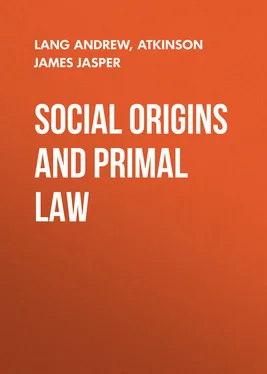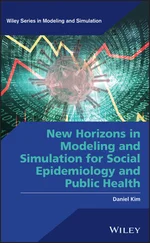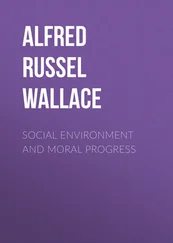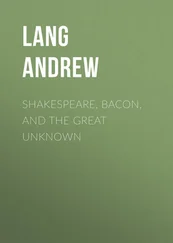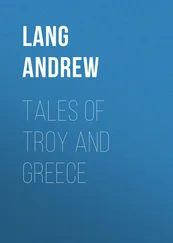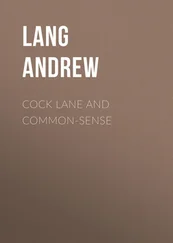Andrew Lang - Social Origins and Primal Law
Здесь есть возможность читать онлайн «Andrew Lang - Social Origins and Primal Law» — ознакомительный отрывок электронной книги совершенно бесплатно, а после прочтения отрывка купить полную версию. В некоторых случаях можно слушать аудио, скачать через торрент в формате fb2 и присутствует краткое содержание. Жанр: foreign_antique, foreign_prose, на английском языке. Описание произведения, (предисловие) а так же отзывы посетителей доступны на портале библиотеки ЛибКат.
- Название:Social Origins and Primal Law
- Автор:
- Жанр:
- Год:неизвестен
- ISBN:нет данных
- Рейтинг книги:3 / 5. Голосов: 1
-
Избранное:Добавить в избранное
- Отзывы:
-
Ваша оценка:
- 60
- 1
- 2
- 3
- 4
- 5
Social Origins and Primal Law: краткое содержание, описание и аннотация
Предлагаем к чтению аннотацию, описание, краткое содержание или предисловие (зависит от того, что написал сам автор книги «Social Origins and Primal Law»). Если вы не нашли необходимую информацию о книге — напишите в комментариях, мы постараемся отыскать её.
Social Origins and Primal Law — читать онлайн ознакомительный отрывок
Ниже представлен текст книги, разбитый по страницам. Система сохранения места последней прочитанной страницы, позволяет с удобством читать онлайн бесплатно книгу «Social Origins and Primal Law», без необходимости каждый раз заново искать на чём Вы остановились. Поставьте закладку, и сможете в любой момент перейти на страницу, на которой закончили чтение.
Интервал:
Закладка:
We shall presently see that other distinguished anthropologists do, to some extent, rely on Arunta myths, as 'bearing the stamp of authenticity.' The truth is that the native thinkers have hit on the same hypothesis as their European critics, the hypothesis of something like deliberate primeval legislation to a given end, the regulation of marriage. Far from accepting any such native myths, I am rather inclined to hold that, whatever theory be correct, the theory of the savage myth-makers must be wrong. It ought to be said that Mr. Fison, at least, knows what his own theory involves, and once even frankly accepted the possibility that the Dieri myth (the foundation of exogamy by divine decree) may be historically true. 'All I contend for is,' he says, 'that if the former existence of the undivided commune be taken for granted' (and Mr. Fison, unlike Mr. Howitt, regards the undivided commune as a mere unproved hypothesis), 'its division into exogamous clans must have had precisely the effect' (a consciously reformatory effect) 'which Mr. Morgan's theory requires. If such a community ever existed, I do not hesitate to say that Mr. Morgan's "reformatory movement" appears to me the most likely method by which it would begin its advance to a better system of marriage' than 'communal marriage.'
But what gave the impulse to the hypothetical moral reformation? Contact with a more advanced tribe is reckoned improbable by Mr. Fison (for how came the other tribe to be more advanced?), and so the moral impulse 'must have been derived from a higher power,' from the Good Spirit, or from ancestral spirits, as in the myths of the Dieri, the Woeworung, also of the Menomini Redmen of North America, a branch of the Algonquins; and the Euahlayi tribe.
According to the Menomini, there is, or was, a Being who 'made the earth.' 104 104 I know that many students will decline to admit that there is such a myth of a Maker.
His name being interpreted means 'The Great Unknown,' but only extreme believers in the theory of religious borrowing will say that he was Sir Walter Scott, Bart. He (The Great Unknown) created 'manidos or spirits,' in the shape of animals, or birds. The chief birds (as often in Australia) were Eagles and Hawks. The Bear 'came out of the ground,' and was turned into an Indian, by the Great Unknown, alias 'The Good Mystery.' He and the Beaver headed totem kins now in 'The Big Thunder phratry.' Other animals came in; there are now Bear, Eagle, Crane, and Moose 'phratries,' each containing a number of totems. All the people of a totem name in the Menomini tribe are akin to persons of the same totem in other tribes, say of the Sioux. 105 105 Report of Bureau of Ethnology , 1892-1893, pt. i. pp. 32-43.
These myths favourably illustrate the piety of the Dieri, Woeworung, Euahlayi men, and Menomini. Like Mr. Fison (at one time, and 'under all reserves') these tribes leaned to the hypothesis of divine or supernormal intervention in matters totemic. The Dieri may be right, but a less difficult hypothesis is that there was never 'an undivided commune,' in the sense of Mr. Morgan and Mr. Fison, and that, consequently, it never was 'divided into exogamous clans.' If so, no miracle is needed: Nec Deus intersit nisi dignus vindice nodus. My own scheme needs no divine aid, nor deliberate legislation, 'in the beginning.' But that such legislation has intervened later, I think probable, or certain.
Messrs. Spencer and Gillen write: 'Rigidly conservative as the native is, it is yet possible for changes to be introduced… There are certain men who are respected for their ability, and, after watching large numbers of the tribe, at a time when they were assembled together for months to perform certain of their most sacred ceremonies, we have come to the conclusion that, at a time such as this, when the older and more powerful men from various groups are met together, and when day by day, and night by night around their camp fires, they discuss matters of tribal interest, it is quite possible for changes of custom to be introduced.' 106 106 Natives of Central Australia , pp. 12-15.
The Arunta traditions allege that such changes introduced by men of weight, and accepted after discussion, have been not unusual. 107 107 Ibid . pp. 15, 421-422, also p. 272.
This is highly probable, now, but not in the beginning.
The Arunta historical traditions are of little value as to historical facts, 108 108 Here I dissent from Mr. Frazer and Messrs. Spencer and Gillen; the point is discussed later.
but the consciousness of the Central Australian tribes accepts the possibility that new customs may now be proposed, debated, and adopted. If no such thing ever occurred, the belief in its possibility could scarcely have arisen among the Arunta. But the possibility has its limits, and one of these is the deliberate primeval introduction of exogamy, for no conceivable reason, and its imposition on a society already totemic but not yet exogamous. Perhaps few critics will frankly say that exogamy was thus imposed; they will try to qualify or evade so improbable and antiquated a theory. Yet they cannot but slip back into it, while they believe in 'segmentations' of 'an undivided commune,' and of later totemic 'subdivisions' of the 'segmentations.'
In any case these Arunta and cognate tribes of similar usages, so recently discovered, so anomalous, so odd, are 'the only begetters' of the latest hypotheses of Mr. Frazer and Mr. Spencer – namely, that totems, originally, were co-operative industrial groups with no influence on marriage rules. Do the Arunta, then, present a surviving model of primitive Totemism, in other regions modified and contaminated; or is their Totemism not, like their metaphysics and psychology, a 'freak,' an unique divergence from the normal development, as I have from the first maintained? 109 109 Fortnightly Review , June 1889.
All these difficulties and confusions, as to 'phratries' and totems, inevitably arise from the doctrine that the original totem groups were not at first exogamous, and only became exogamous when separate sets of them were scheduled under the two more recent exogamous primary divisions, or were segmented out of them. In that case it is not easy to see how we can escape from the impossible theory that exogamy, and the primary divisions, were the result, of direct legislative enactment. Even if we could believe this, we see no conceivable motive, except Mr. Fison's divine intervention, an idea which, it appears, he put forward quite provisionally in an argument with Lord Avebury. 110 110 In 1895, J. A. I. xxiv., no. 4, p. 371, Mr. Fison abandons hope of a certain discovery of the origin of exogamy.
THE ARUNTA
The case of these Central Australian tribes, in regard to Totemism and marriage prohibitions, is so peculiar that it demands particular notice. Mr. Frazer some years ago propounded the hypothesis that the Arunta tribe, especially, are the most 'primitive' of living peoples, are still in 'the chrysalis stage' of humanity, whence it would follow that their singular kind of Totemism, and of marriage rules, is nearest to the beginning, and best represents the original type. 111 111 Fortnightly Review , April, May, 1899.
The Arunta, dwelling in the arid regions of the centre, have certainly been little contaminated by European influences. They are naked, houseless, non-agricultural nomads, like all the Australian tribes, and it is asserted by Messrs. Spencer and Gillen and others that they have not yet discovered the rather obvious facts as to the reproduction of the species. All this has certainly a primitive air. But I have ventured to reply that the Arunta, as regards the family, are confessedly more advanced towards individual marriage than their neighbours, the Urabunna, with whom they freely intermarry. 112 112 Spencer and Gillen, pp. 68, 69, 121.
Unlike what is told of the Urabunna, the Arunta recognise 'individual marriage.' They deliberately and ingeniously modify their system on the occasion of intermarriage with the Urabunna. These reckon descent in the female, the Arunta in the male line. 113 113 Ibid . p. 70.
The office of Alatunja, or head man of a local group, among the Arunta, is hereditary in the male line, descending to a brother of the late Alatunja, if he leaves no adult son. 114 114 Ibid . p. 10.
Интервал:
Закладка:
Похожие книги на «Social Origins and Primal Law»
Представляем Вашему вниманию похожие книги на «Social Origins and Primal Law» списком для выбора. Мы отобрали схожую по названию и смыслу литературу в надежде предоставить читателям больше вариантов отыскать новые, интересные, ещё непрочитанные произведения.
Обсуждение, отзывы о книге «Social Origins and Primal Law» и просто собственные мнения читателей. Оставьте ваши комментарии, напишите, что Вы думаете о произведении, его смысле или главных героях. Укажите что конкретно понравилось, а что нет, и почему Вы так считаете.
